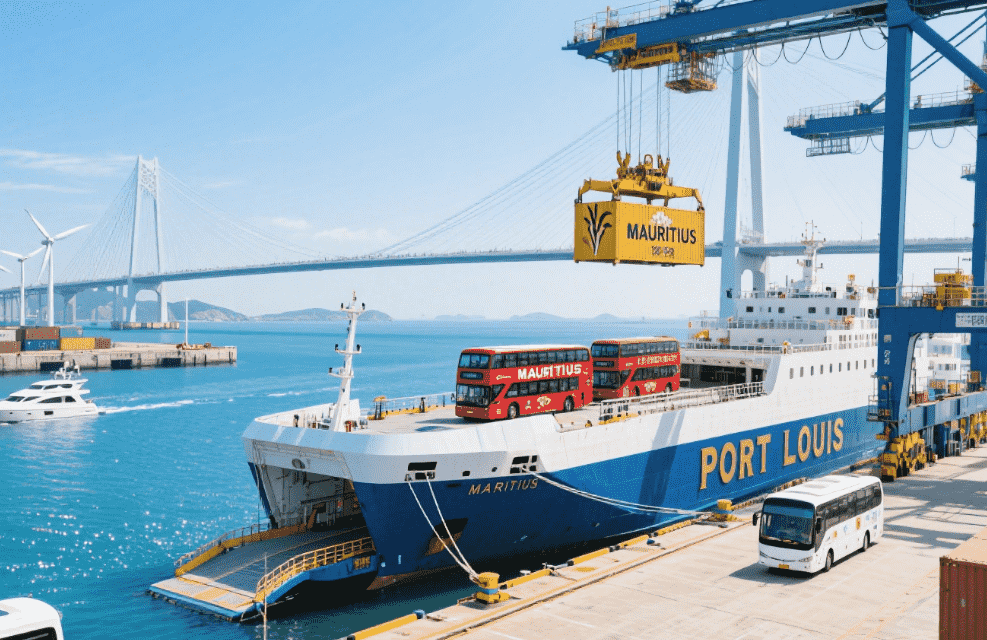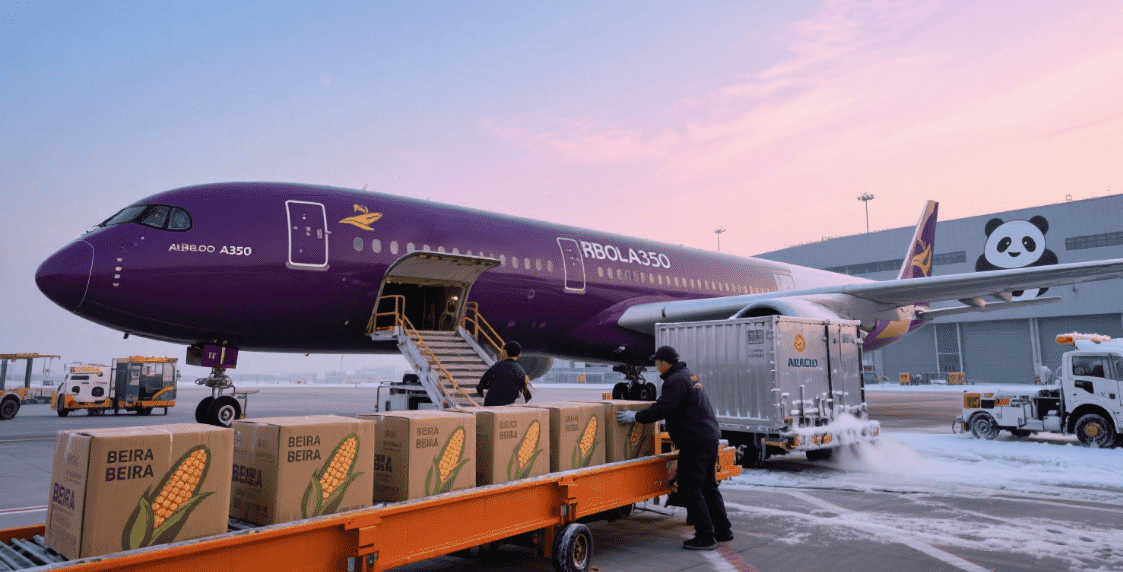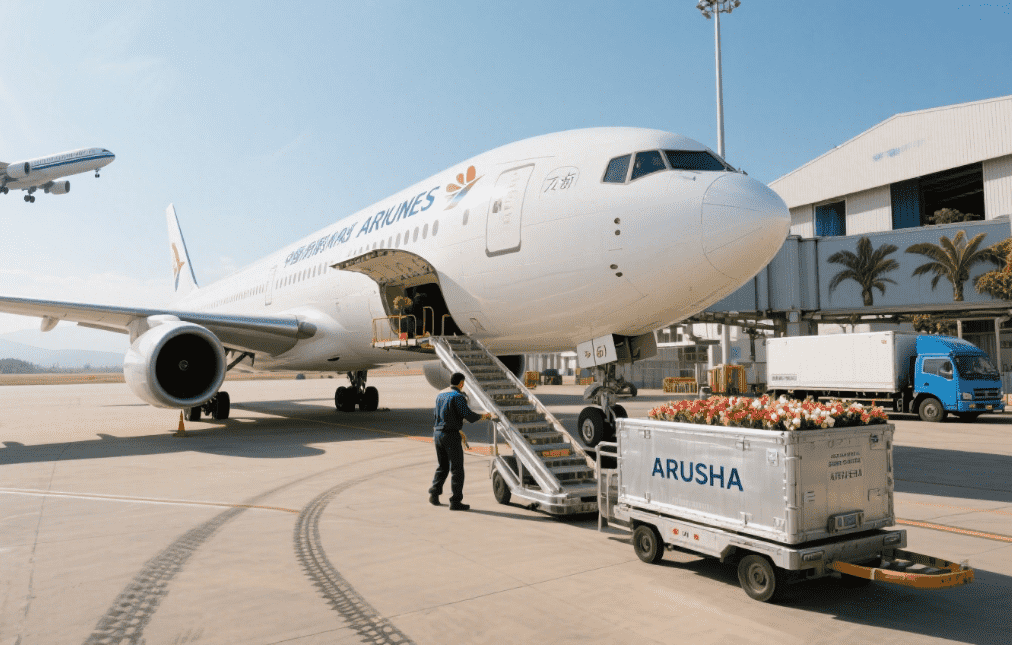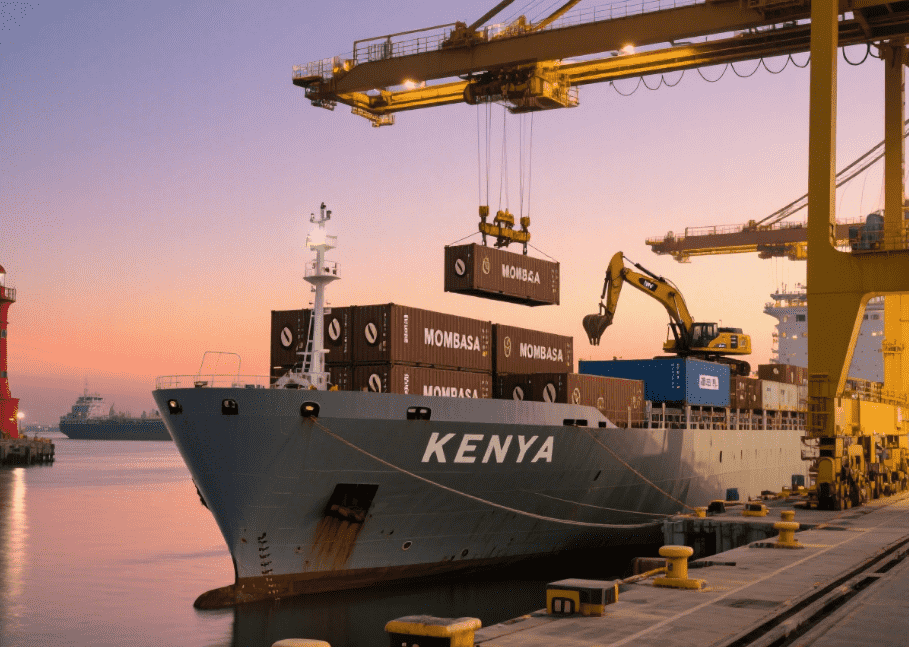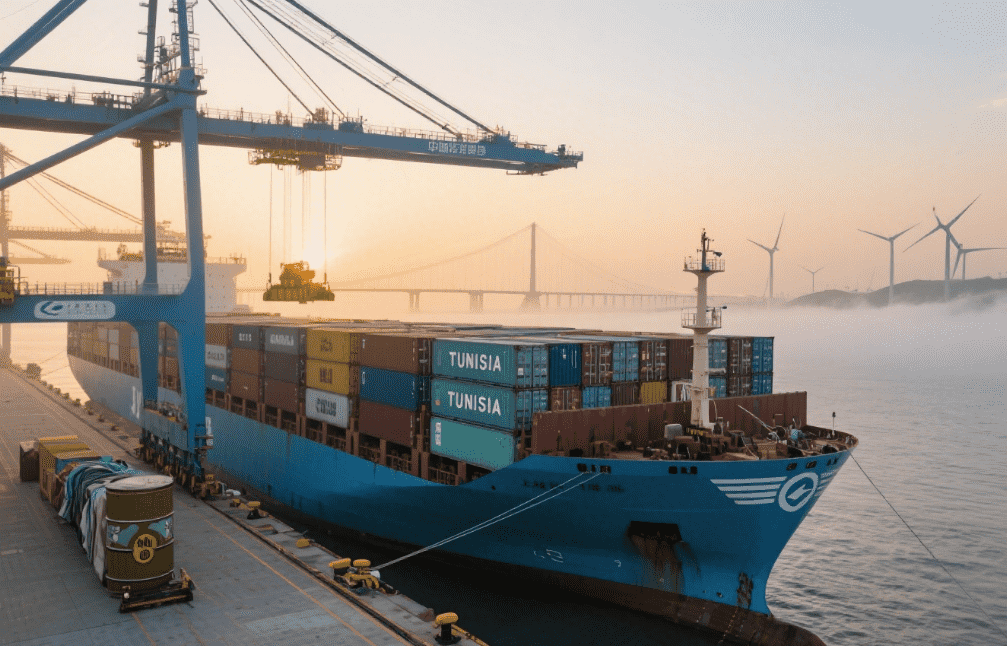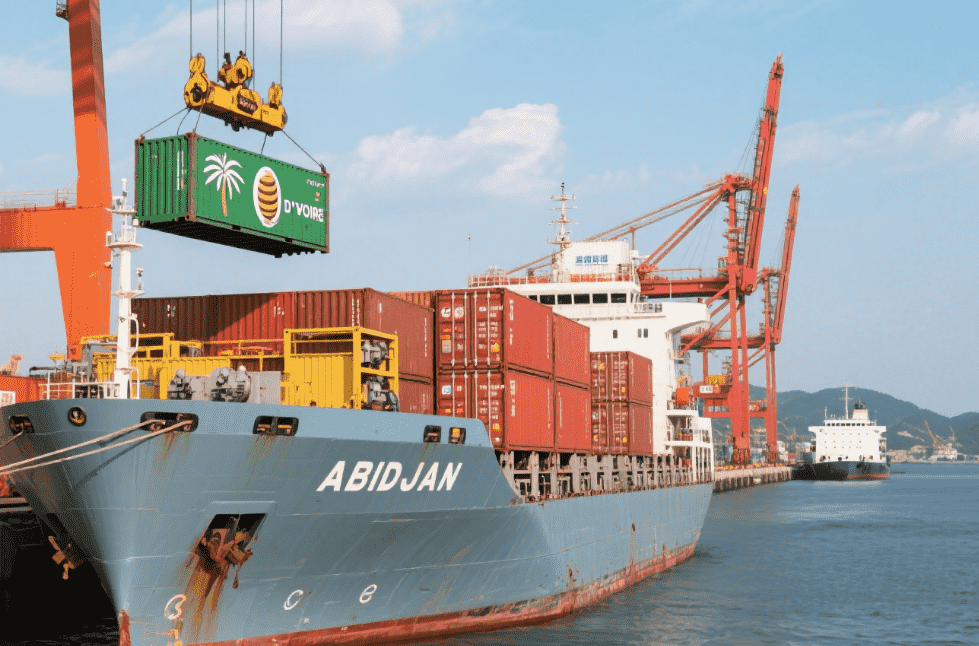
The China-Côte d'Ivoire trade route has become increasingly vital for businesses accessing West Africa's rapidly expanding economy. Yet navigating international shipping complexities—from volatile freight rates to regulatory compliance—requires expert logistics planning. For trade professionals, mastering transportation economics and implementing customized shipping solutions often determines commercial success. This analysis examines the primary cost drivers for China-Ivory Coast shipments, demonstrates the strategic value of professional freight forwarders, and reveals how targeted logistics approaches can transform supply chain performance.
1. The Strategic Importance of China-Côte d'Ivoire Trade
Côte d'Ivoire, Africa’s fastest-growing economy, is a hub for commodities like cocoa, oil, and minerals, while China remains its largest trading partner, supplying machinery, electronics, and manufactured goods. This symbiotic relationship has fueled a surge in maritime and air freight volumes. According to UN Comtrade data, bilateral trade exceeded $4.5 billion in 2023, with over 70% of Ivorian imports originating from China. This dynamic underscores the need for efficient logistics solutions to sustain growth.
2. Decoding Shipping Costs: Key Components
Shipping costs from China to Côte d'Ivoire are influenced by multiple variables, each requiring meticulous analysis:
a. Mode of Transportation
- Sea Freight: The primary method for bulk cargo, with major ports like Abidjan handling 90% of Ivorian imports. Costs depend on container types (FCL/LCL), voyage duration (25–40 days), and seasonal demand. For instance, a 40’ container from Shanghai to Abidjan averages 3,500–5,000, excluding duties.
- Air Freight: Ideal for high-value or time-sensitive goods (e.g., electronics, pharmaceuticals). Rates range from 4–8 per kg, with transit times of 5–7 days. However, capacity constraints during peak seasons can spike prices by 30–50%.
- Rail-Sea Multimodal: An emerging option combining China-Europe rail to ports like Piraeus, then transshipment to Abidjan. While slower than air freight, it reduces costs by 15–20% compared to pure sea freight for inland Chinese origins.
b. Carrier and Routing
Major carriers like COSCO, MSC, and Maersk dominate this route, offering competitive rates but varying transit reliability. Indirect routes via Europe or North Africa may lower costs but add 7–10 days to delivery timelines. A proficient cargo agent can negotiate favorable contracts with carriers based on volume commitments.
c. Customs and Regulatory Compliance
Côte d'Ivoire’s customs authority, Direction Générale des Douanes, enforces strict documentation requirements, including certificates of origin, phytosanitary permits, and VAT payments (18%). Non-compliance penalties can escalate costs by 10–15%, emphasizing the need for expert clearance services.
d. Incoterms and Liability
Under FOB (Free on Board), the buyer bears freight costs, while CIF (Cost, Insurance, Freight) shifts responsibility to the seller. Choosing the right Incoterm impacts insurance premiums, risk allocation, and total landed cost.
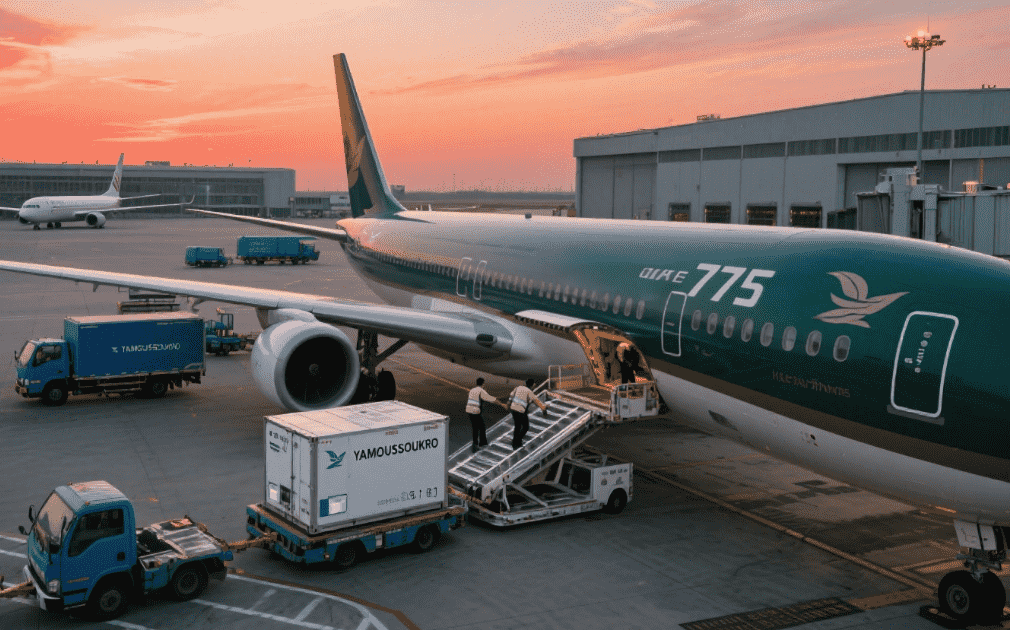
3. The Role of a Trusted Cargo Agent
A competent cargo agent acts as a linchpin in managing shipping costs and mitigating risks. Here’s how they add value:
- Rate Optimization: Agents leverage bulk purchasing power to secure discounts from carriers, reducing freight expenses by 10–20%.
- Route Planning: By analyzing port congestion data and carrier schedules, agents recommend the fastest or most cost-effective routes. For example, avoiding Abidjan during cocoa export peaks (September–December) can prevent delays.
- Documentation Expertise: Errors in bills of lading or customs declarations can lead to fines or shipment holds. Agents ensure 100% compliance with Ivorian regulations.
- Cargo Insurance: Agents facilitate comprehensive coverage against damage or theft, with premiums as low as 0.3% of cargo value.
4. Freight Service Innovations: Technology and Sustainability
Modern logistics solutions are embracing digital tools to enhance transparency and efficiency:
- Blockchain: Platforms like TradeLens (Maersk’s initiative) provide real-time tracking, reducing documentation errors and delays.
- AI-Powered Analytics: Predictive models forecast rate fluctuations, enabling businesses to lock in favorable contracts ahead of peak seasons.
- Green Logistics: Côte d'Ivoire’s commitment to reducing carbon emissions by 30% by 2030 has spurred demand for eco-friendly shipping options, such as slow-steaming vessels and biofuel-powered containers.
5. Case Study: Streamlining Electronics Imports for an Ivorian Retailer
A leading Ivorian electronics retailer faced recurring delays and high costs when importing from China. By partnering with a cargo agent specializing in freight service optimization, they achieved:
- Cost Reduction: Switched from air freight to multimodal rail-sea, cutting expenses by 40%.
- Speed Enhancement: Utilized priority loading at Chinese ports, reducing transit time by 10 days.
- Risk Mitigation: Implemented blockchain-based tracking, eliminating 90% of documentation disputes.
This case illustrates how strategic logistics solutions can transform supply chain performance.
6. Future Trends Shaping China-Côte d'Ivoire Trade
- Infrastructure Investments: Côte d'Ivoire’s $2.3 billion Abidjan Autonomous Port expansion will double container capacity by 2025, reducing congestion and shipping costs.
- Regional Integration: The African Continental Free Trade Area (AfCFTA) aims to slash intra-Africa tariffs, potentially lowering cross-border distribution costs for Chinese goods.
- E-Commerce Boom: Ivorian online shopping is growing at 25% annually, driving demand for smaller, faster shipments and last-mile delivery innovations.
Conclusion: Partnering for Success
Navigating shipping costs from China to Côte d'Ivoire demands a blend of industry expertise, technological agility, and strategic partnerships. By collaborating with a seasoned cargo agent and adopting innovative freight service models, businesses can unlock cost savings, accelerate deliveries, and build resilient supply chains. As trade volumes continue to rise, proactive logistics planning will be indispensable for sustaining competitive advantage in this vibrant corridor.
For tailored logistics solutions that bridge China and Côte d'Ivoire, explore how Winsail Logistics can empower your global trade journey at https://www.winsaillogistics.com.


